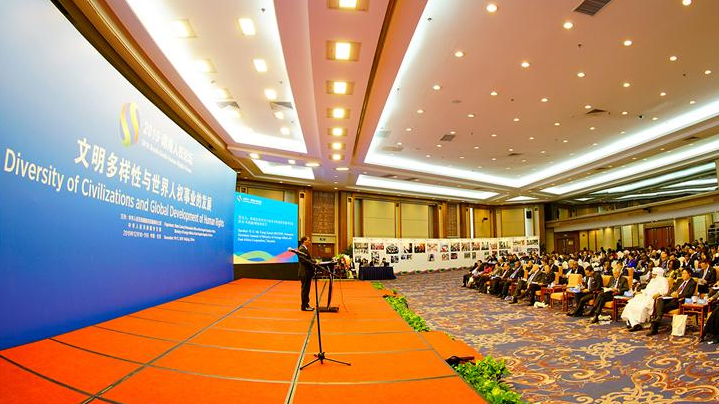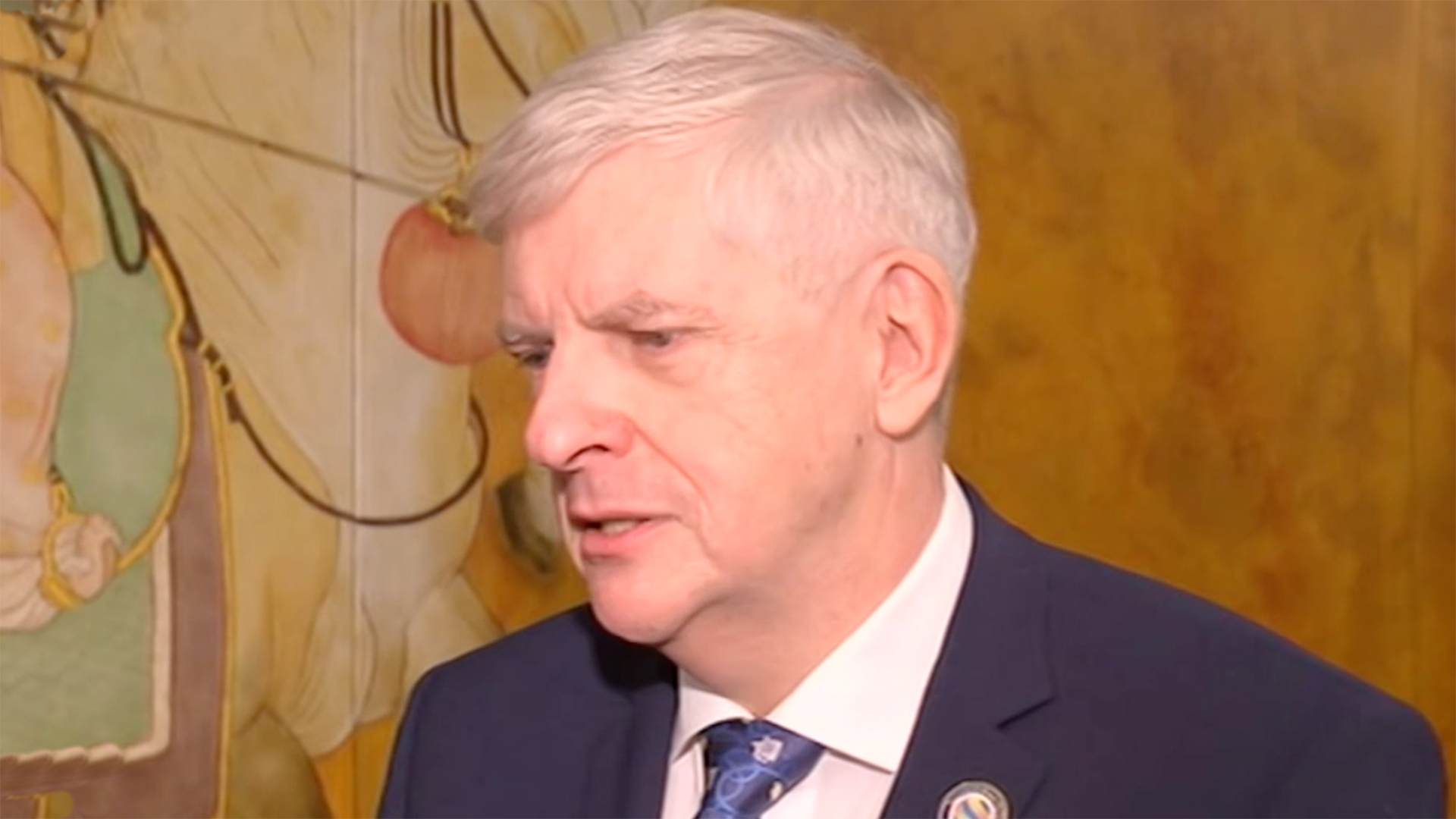Experts attending the South-South Human Rights Forum (SSHRF) in Beijing shared their thoughts on U.S. interference in China's Xinjiang Uygur Autonomous Region and the country's passing of the "Uygur Human Rights Policy Act of 2019", which has led strong condemnation from China.
"The real issue is about the U.S.' policy towards China. They are talking about containing China's development, trying to implement pressure on China within the international community. I don't think Americans really care about what's going on in Xinjiang," said Lionel Vairon, the CEO of CEC Consulting.
"They have invaded Iraq, they have invaded Afghanistan, made war in Libya. All of these are Muslim countries. So how can they come and talk about Muslims in China?" he added.

The South-South Human Rights Forum, Beijing, China, December 10-11, 2019. /Photo via SSHRF official website
The South-South Human Rights Forum, Beijing, China, December 10-11, 2019. /Photo via SSHRF official website
Mostafa Alaei, former Iranian ambassador to Venezuela as well as the founder of a General Assembly Human Rights Resolution in 1999 entitled "Human Rights, Culture and Diversity," said that there should have respects towards cultural diversity within human rights domain.
"The point is that no civilization can have the domain and superiority above other civilizations in terms of human rights. Every civilization of the culture has its own value, how to preserving human rights, within their own beliefs... Eastern countries can have improvement of their human rights within their own values," he said.
Mostafa Alaei noted that China has come a very long way in improving its economy and human rights based on these idea. "We should set aside hegemony by western countries and start from within ourselves in terms of human rights."
Later he told reporters that "the Western media has a long history of demonizing other countries."
"They have a long history of tarnishing the image of other countries in terms of human rights. And they also have a long history of manipulating political developments, manipulating human rights development, and economic development in many countries. When I say many countries, I mean those countries who don't follow the path of the U.S.."
02:37

"This is unacceptable interference by the U.S. in the internal affairs of China. They are trying to use human rights as a political weapon. For a country that destroyed the lives of millions of Muslims in the Middle East after 9/11," said Senator Mushahid Hussain Sayed, chairman of Pakistan-China Institute.
He cited the situations in Afghanistan, Iraq and Syria.
"Libya has been destroyed, and they still have the audacity to talk about human rights in other countries, just because they want to press China," he added.
Ahmed Sekou Keita, the chief of the Cabinet of Guinean Ministry of Mines and Geology, said that China's approach to human rights is new, especially for a developing country as it is based more on sustainable development, providing the basic needs for population to protect and guaranteeing human rights
The chief then stressed the priorities for developing countries, "I would say development, provide the basic needs of the people."
(Cover photo via the website of the 2019 SSHRF)